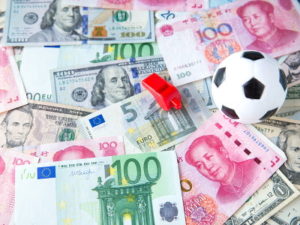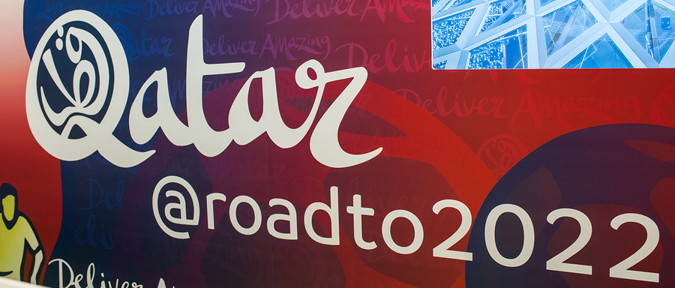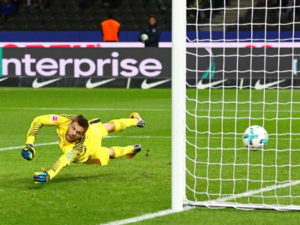Why Do The Super Rich Invest In Sports?
 More and more incredibly rich people have decided to get involve with various sports by buying clubs. Obviously no massively rich person is the same as another, with the only definitive link between them being the ludicrous amount of money that they have access to. In 2016, the total wealth of the richest people on the planet grew by 17%, hitting the height of six trillion dollars. For us mere mortals, the obvious question would be about why on earth so few people would need so much money between them, but they don’t see it that way.
More and more incredibly rich people have decided to get involve with various sports by buying clubs. Obviously no massively rich person is the same as another, with the only definitive link between them being the ludicrous amount of money that they have access to. In 2016, the total wealth of the richest people on the planet grew by 17%, hitting the height of six trillion dollars. For us mere mortals, the obvious question would be about why on earth so few people would need so much money between them, but they don’t see it that way.
The super rich don’t think about things in the same way that the rest of us do. However they might have got their money, they will think that they are fully deserving of it. For them, it is a matter of making sensible investments wherever and whenever they can. The problem is, buying a sports team isn’t really all that sensible an investment. It certainly isn’t one that is likely to make them much money, so why is it that the super rich have decided to start buying sports teams around the world? What do they get out of it?
Sports Washing

There is one obvious place to start when it comes to the super rich, which is with the act of sports washing. In short, sports washing is the practice of using sport to improve a reputation that might have been tarnished for some reason. It can be done by a group, an individual or even a nation state, with the practice involving either hosting a sporting event, buying a team or sponsoring a team. It is often a method used by nation states in order to direct the attention of people away from a poor human rights record or scandals within government.
In the United Kingdom alone, there are numerous examples of sports washing that we can look towards. In recent times, for example, the purchase of Manchester City by the Abu Dhabi royal family was criticised by Amnesty International as being a blatant attempt at sports washing. Devin Kenney, a researcher for Amnesty International, said,
“The UAE’s enormous investment in Manchester City is one of football’s most brazen attempts to ‘sportswash’ a country’s deeply tarnished image through the glamour of the game. As a growing number of Manchester City fans will be aware, the success of the club has involved a close relationship with a country that relies on exploited migrant labour and locks up peaceful critics and human rights defenders.”
An expert on the United Arab Emirates at Durham University, Christopher Davidson, said about the matter,
“The Premier League provides an incredible international advertising platform for Abu Dhabi’s state-owned entities. And by investing in football, museums and hospitals, or even east Manchester, Abu Dhabi is winning hearts and minds.”
That might also explain why a Saudi Arabian consortium chose to take over Newcastle United towards the end of 2021, having witnessed how successful the sports washing operation had been at the Etihad.
Amnesty International’s Chief Operating Officer in the UK, Sacha Deshmukh, said about the takeover,
“Whatever the result on Sunday, we wish Newcastle fans and their team well, but we remain deeply concerned about how our football clubs are being used for sports washing. Football clubs being purchased for the purpose of trying to distract from serious human rights violations isn’t confined to Newcastle, and sports washing isn’t confined to football – but the Saudi takeover has obviously brought the issue of human rights and football governance into sharp relief.”
If there was any doubt about the validity of such claims, one need only suggest that Newcastle are being used to sports wash Saudi Arabia to a group of the club’s supporters in order to be inundated with people happy to defend the Kingdom for their human rights record. Indeed, sports washing can best be seen in action by looking to the response of Chelsea supporters to the news that their Russian owner was planning to sell the club during the Russian invasion of Ukraine. During a minute’s applause in support of Ukrainians, they sang the name of their Russian owner, Roman Abramovich.
For rich owners, buying a sports club can present them with a host of rabid supporters that are happy to turn a blind eye to whatever misdemeanours they’ve been up to, as long as they keep investing money in the team that they support. These people will act as the sports washer’s very own online army, using social media to attack anyone who dare suggest that the people behind the money are less than ideal humans, let alone owners. That is why so many billionaires are keen to own clubs, especially if they have a less than clean record when it comes to the likes of human rights.
Investment
 It is fair to say that sports clubs are rarely a good investment. Generally speaking, most clubs can be expected to lose money over both the short and long-term. As a result, most of the super rich are likely to steer clear of football clubs in terms of using them as an investment. As with everything in life, however, there are always exceptions that prove the rule. One such example can be seen in the purchase of Liverpool Football Club by New England Sports Ventures, who would later become known as Fenway Sports Group.
It is fair to say that sports clubs are rarely a good investment. Generally speaking, most clubs can be expected to lose money over both the short and long-term. As a result, most of the super rich are likely to steer clear of football clubs in terms of using them as an investment. As with everything in life, however, there are always exceptions that prove the rule. One such example can be seen in the purchase of Liverpool Football Club by New England Sports Ventures, who would later become known as Fenway Sports Group.
The Merseyside club had been owned by a couple of American owners called Tom Hicks and George Gillett for some years, but supporters were not happy with the leveraged buyout that Hicks and Gillett had used to purchase the club. On the brink of administration, NESV spotted an opportunity. They were able to buy the club for £300 million, which wasn’t an insignificant sum of money but was also quite low down in terms of what major football clubs are worth. As a result, they saw it as a chance to speculate in order to accumulate.
In the years that followed the purchase, Fenway Sports Group, as they then became, invested in numerous different improvements to both the playing squad and the structure of the football club. A new Main Stand was built at Anfield, with building work also granted to develop another of the stands at the stadium. A new training complex was also built, during which time the manager, Jürgen Klopp, helped the club to win the Champions League and the Premier League title, as well as numerous other trophies during the first few years of his time as the man at the top.
By November of 2021, the success on the field as well as the improvements off it had seen the club’s value sky rocket. According to an estimate by Forbes, Liverpool were valued at around $4 billion. The American owners had taken a sleeping giant and woken it up, seeing their investment pay off in an impressive manner. Whilst they didn’t get access to that money because they didn’t sell the club and they invested some of their own money to ensure the improvement happened, it was obviously a sensible investment that will have given other billionaires a reason to try to spot other value markets.
Ego
 Though it is a less common reason, one of the big reasons why rich people used to buy sports clubs was in order to massage their egos. As a rich person, they can use their money to buy players, improve the local area and develop the facilities available. By doing so, the rich will soon have those that benefit from such improvement singing their praises. We have already mentioned this phenomenon in relation to sports washing, but for some they do it simply to be able to get credit for using their money for such an altruistic reason.
Though it is a less common reason, one of the big reasons why rich people used to buy sports clubs was in order to massage their egos. As a rich person, they can use their money to buy players, improve the local area and develop the facilities available. By doing so, the rich will soon have those that benefit from such improvement singing their praises. We have already mentioned this phenomenon in relation to sports washing, but for some they do it simply to be able to get credit for using their money for such an altruistic reason.
In a 2016 report, it was said that 109 billionaires owned the top 140 sports brands. That included rugby clubs, Formula One teams and ice hockey sides, to say nothing of the aforementioned football. Whilst some of that will be for sports washing, it won’t all be. As a result, at least some of it will be for the purpose of massaging their own egos. Feeling better about themselves can be seen as akin to a personal sports wash, allowing them to feel as though they’ve given something back to their communities in some way or another.
This sense of improving your legacy is something that rich people will often feel. Though they’ve made more money than anyone could ever possibly need in their lifetimes, they want to feel as though they’ve left something behind. There is also the fact that it creates opportunities. One billionaire pointed to the fact that it opens the door to people, allowing them to ‘sit at the table with stars, sheikhs, famous businessmen and regular guys from around the world, all in the same room, all talking only about the ball.’ That alone can make it worthwhile.
Expanding The Brand
 Another aspect of buying a sports club that might not often be thought of by many is the ability of a business owner to expand their brand. For an example of this, let us look at the V H Group, an Indian food processing company that bought Blackburn Rovers in 2010. They paid £23 million for a 99.9% stake in the northern club, becoming the first Indian company to own a team that played in the Premier League. That status didn’t last for very long, with Blackburn soon being relegated out of the English top-flight into the Championship.
Another aspect of buying a sports club that might not often be thought of by many is the ability of a business owner to expand their brand. For an example of this, let us look at the V H Group, an Indian food processing company that bought Blackburn Rovers in 2010. They paid £23 million for a 99.9% stake in the northern club, becoming the first Indian company to own a team that played in the Premier League. That status didn’t last for very long, with Blackburn soon being relegated out of the English top-flight into the Championship.
A representative of Venky’s would no doubt point out that the company also took on around £21 million in debt when buying the company, but a Blackburn fan would doubtless retaliate that they’ve been rubbish owners. Since the firm took over in 2010, the Riversiders have dropped down into the Championship, dropped again into League One and been promoted back into the Championship, becoming a firmly mid-table team in the English second-tier. The days of the title-winning Premier League side are long gone, despite promises to re-assert them as that when Venky’s took over.
When the food production company, which specialises in chicken, bought the football club, the share price was 516.60. At the time of writing, more than ten years later, the share price is 1,993.95. Obviously buying Blackburn Rovers alone isn’t responsible for that, but it is entirely fair to surmise that the purchase of the Lancashire club helped the company to be taken seriously as a global player in the food distribution market. Even the fact that the club isn’t doing particularly well in a footballing sense doesn’t matter too much, considering the improvement in the business’ overall reputation that has come since buying it.
Love For The Game
 There is a reason why we’ve put this reason for buying a sports club or investing in sport in some other way at the very bottom of our list. It goes without saying that this is the least likely reason for any sort of investment made by a rich person, largely because they tend to just want to keep making themselves rich. Yet it is undeniable that there will be some millionaires and billionaires out there that invest in sports for the simple reason that they love the sport or love a team involved in the sport. For proof of this, it is worth looking at Simon Jordan and Crystal Palace.
There is a reason why we’ve put this reason for buying a sports club or investing in sport in some other way at the very bottom of our list. It goes without saying that this is the least likely reason for any sort of investment made by a rich person, largely because they tend to just want to keep making themselves rich. Yet it is undeniable that there will be some millionaires and billionaires out there that invest in sports for the simple reason that they love the sport or love a team involved in the sport. For proof of this, it is worth looking at Simon Jordan and Crystal Palace.
The multi-millionaire will be known to most people nowadays as something of a rent-a-gob for TalkSport, but first and foremost he is a Crystal Palace fan. On the fifth of July 2000, Jordan paid more than £10 million in order to purchase the club that he loved, having earned his money running a mobile phone business. At the time, Palace were on the brink of bankruptcy and would almost certainly have gone out of business, having already gone into administration. In buying the club, he become the youngest owner of a football club anywhere in the world.
There is no questioning the fact that Simon Jordan meant well. He had bought the club because he loved it and he hated seeing it in trouble. The problem was, he wasn’t a very good owner. Ten years after he’d bought it, the club was back into administration and looking for a new owner, with the debts being reported at about £30 million. Proof, where it needed, that just because you love something doesn’t mean that you should become involved in it. Ironically, he wasn’t even particularly well-liked by Palace fans and it cost him £75 million for the pleasure.



